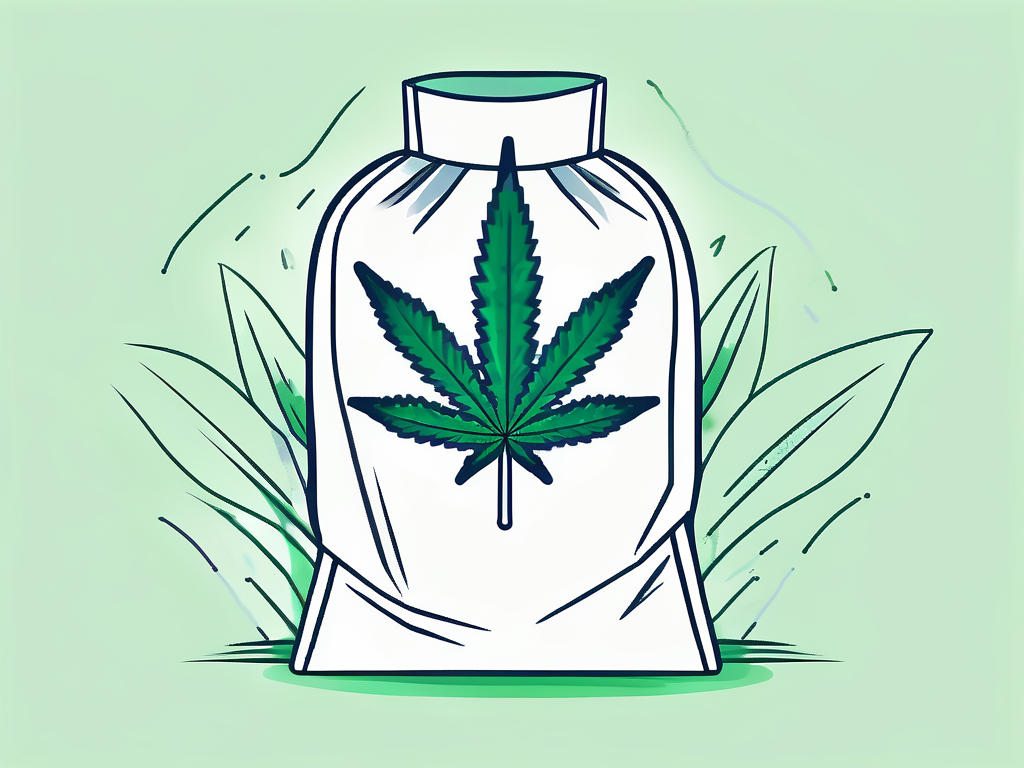Marijuana use has become increasingly widespread and accepted in many parts of the world. As its popularity grows, so do questions about the potential impacts it might have on various aspects of life, including donating plasma. But can you donate plasma if you smoke weed? Let’s explore this topic and shed light on the relationship between plasma donation and marijuana use.
Understanding Plasma Donation
Before diving into the impact of marijuana on plasma donation, it’s crucial to comprehend what plasma donation entails. Plasma is a vital component of our blood, accounting for approximately 55% of its volume. It contains essential proteins that help with blood clotting, fighting infections, and maintaining the body’s fluid balance.

Plasma donation is a process where a person’s plasma is separated from their blood, with the remaining components returned to their body. Plasma is then used to create life-saving treatments and medications for individuals with various medical conditions.
When an individual decides to donate plasma, they are contributing to a critical aspect of healthcare that often goes unnoticed. The plasma collected from donors undergoes rigorous testing and processing before being used in therapies. This ensures that the final products derived from plasma donation are safe and effective for patients in need.
What is Plasma?
Plasma is the yellowish, liquid portion of our blood that carries red and white blood cells, platelets, nutrients, hormones, and antibodies throughout our body. Being a significant part of our circulatory system, plasma holds several essential functions and plays a crucial role in maintaining our overall health.
It’s fascinating to note that plasma is primarily composed of water, making up about 90% of its content. This aqueous solution also contains vital electrolytes such as sodium and potassium, which are crucial for maintaining the body’s pH balance and facilitating nerve and muscle function.
The Importance of Plasma Donation
Plasma donation is of paramount importance as it provides a lifeline for individuals with medical conditions such as immune deficiencies, hemophilia, burns, and trauma injuries. The plasma obtained from donors is processed into life-saving therapies and helps improve the quality of life for countless patients worldwide.
Furthermore, plasma donation plays a significant role in scientific research and development. Researchers use plasma-derived products to study diseases, develop new treatment methods, and enhance our understanding of the human body’s intricate biological processes. By donating plasma, individuals contribute not only to patient care but also to the advancement of medical knowledge and innovation.
The Impact of Smoking Weed on the Body
Now, it’s time to explore the impact of smoking weed on the body to better understand its potential effects on plasma donation.
Smoking weed can have various effects on the body, both short-term and long-term. Understanding these impacts is crucial for making informed decisions about marijuana use and its potential consequences.
Short-term Effects of Marijuana
When an individual smokes weed, delta-9-tetrahydrocannabinol (THC), the primary psychoactive compound in cannabis, enters their bloodstream and affects their body and mind. Short-term effects of marijuana include altered cognition, impaired memory, increased heart rate, dry mouth, and bloodshot eyes.
Additionally, short-term effects may also include heightened sensory perception, euphoria, relaxation, and an altered sense of time. These effects can vary depending on the individual’s tolerance, the potency of the marijuana strain, and the method of consumption.
Long-term Consequences of Weed Consumption
The long-term effects of marijuana use are a subject of ongoing research. Some studies suggest a potential link between heavy, long-term marijuana use and diminished cognitive function, respiratory problems, and increased risk of mental health disorders. However, more research is needed to fully understand the long-term consequences of weed consumption.
Furthermore, long-term marijuana use has been associated with potential addiction, withdrawal symptoms upon cessation, and a decrease in motivation. It’s essential for individuals to weigh the potential risks and benefits of marijuana use, especially when considering its impact on overall health and well-being.
Marijuana and Blood Donation: What’s the Connection?
Now that we have addressed the general effects of marijuana on the body, let’s explore how marijuana might impact blood composition and its potential implications for blood and plasma donation.

How Marijuana Affects Blood Composition
Marijuana use may temporarily affect an individual’s blood composition. THC has been known to induce an increase in heart rate and expand blood vessels. These physiological changes may have an impact on blood pressure and blood flow.
When THC enters the bloodstream, it binds to cannabinoid receptors in the brain and other organs, including the heart. This interaction triggers the release of certain neurotransmitters and hormones that can influence blood composition. For example, THC stimulates the release of dopamine, which can lead to an increase in heart rate. Additionally, THC causes blood vessels to dilate, allowing for increased blood flow throughout the body.
The Potential Risks of Donating Blood After Smoking Weed
As of now, there is no evidence to suggest that smoking weed disqualifies an individual from donating blood or plasma. However, it is essential to consider the potential risks associated with marijuana use before attempting to donate. Donating blood while under the influence of marijuana could potentially lead to complications such as dizziness, fainting, or feeling lightheaded.
When marijuana is smoked, THC is rapidly absorbed into the bloodstream, reaching peak levels within minutes. This quick onset of effects can result in temporary changes in cognitive function and coordination, which may increase the risk of accidents or injuries during the donation process. It is always recommended to be fully aware of your physical state and disclose any drug use to medical professionals during the screening process.
Additionally, blood banks have strict eligibility criteria in place to ensure the safety of both donors and recipients. Factors such as recent drug use or engaging in high-risk behaviors may disqualify an individual from donating blood or plasma. It is crucial to adhere to these guidelines to safeguard the health of those who may receive blood products derived from your donation.
Furthermore, it is important to note that the effects of marijuana can vary depending on various factors, such as the strain, potency, and method of consumption. Different strains of marijuana contain varying levels of THC and other cannabinoids, which can have different effects on the body. It is essential to consider these factors when assessing the potential risks associated with donating blood after marijuana use.
Plasma Donation Requirements and Restrictions
Now, let’s delve into the general eligibility criteria for plasma donation and specific restrictions related to drug use.
General Eligibility Criteria for Plasma Donation
To be eligible for plasma donation, individuals typically need to meet certain requirements, including age, general health, and weight criteria. They must also undergo a thorough health screening process to ensure the safety of the plasma supply.
Furthermore, potential plasma donors are often required to have a minimum hemoglobin level to ensure that they can safely donate plasma without any adverse effects on their health. This criterion helps in maintaining the well-being of the donor throughout the donation process and guarantees the quality of the collected plasma for therapeutic purposes.
Specific Restrictions Related to Drug Use
While guidelines may vary from one plasma collection center to another, drug use, including marijuana consumption, may impact an individual’s eligibility to donate plasma. It is crucial to disclose any recent drug use during the screening process to ensure the safety and well-being of both the donor and potential recipients of the derived plasma products.
In addition to drug use, certain medications or medical conditions can also lead to temporary or permanent deferral from plasma donation. For example, individuals taking specific medications for chronic conditions may need to wait for a designated period after their last dose before being eligible to donate plasma. This precaution is in place to prevent any potential interactions between the medications and the donated plasma, safeguarding the health of both the donor and the recipients who rely on plasma-derived therapies.
The Science Behind Plasma Donation and Marijuana Use
The relationship between plasma donation and marijuana use remains a topic of interest among medical professionals and researchers. Let’s take a closer look at the current research and the ongoing debate surrounding this subject.

Current Research on Marijuana and Plasma Donation
While existing research primarily focuses on the effects of marijuana use on blood composition and donation eligibility, there is still much to learn about its specific impact on plasma donation. Studies are being conducted to examine the potential implications and determine if any additional safety measures need to be established.
The Debate Among Medical Professionals
Medical professionals and experts hold differing views on the impact of marijuana use on plasma donation. Some argue that as long as the donor meets the general eligibility criteria and is not under the influence of marijuana at the time of donation, their use should not be a disqualifying factor. Others advocate for more stringent restrictions to ensure the safety and quality of the plasma supply.
As the scientific community continues to gather more evidence, medical professionals and regulatory bodies will strive to reach a consensus and establish clear guidelines regarding plasma donation and marijuana use.
In conclusion, the impact of smoking weed on donating plasma is a complex topic that requires further research and consideration. While there is currently no evidence to suggest that marijuana use automatically disqualifies individuals from donating plasma, it is crucial to disclose any drug use during the screening process. Medical professionals and plasma collection centers will continue to work together to ensure the ongoing safety and efficacy of plasma donation in light of evolving societal attitudes towards marijuana use.